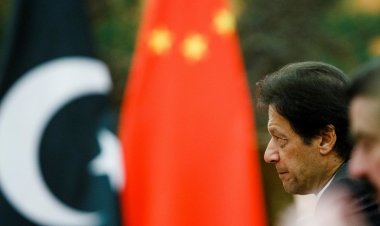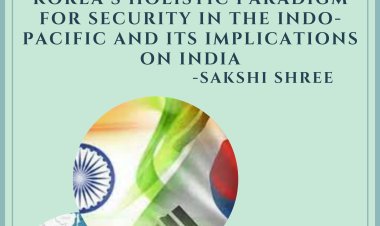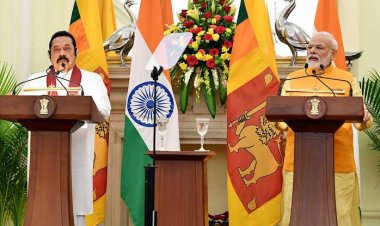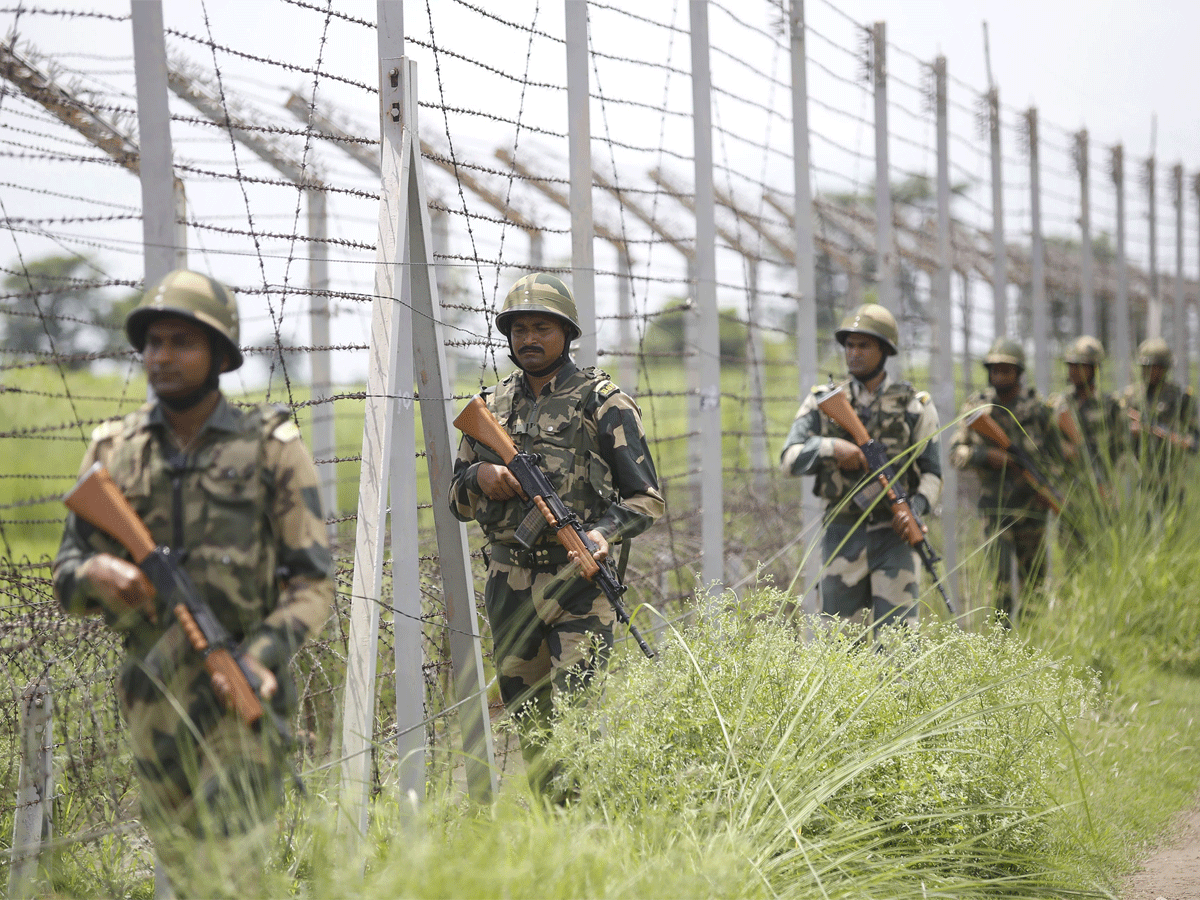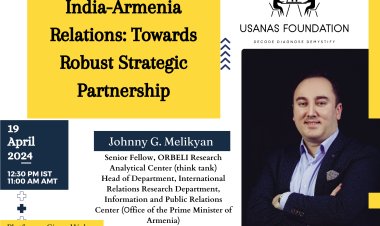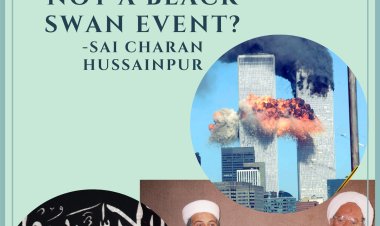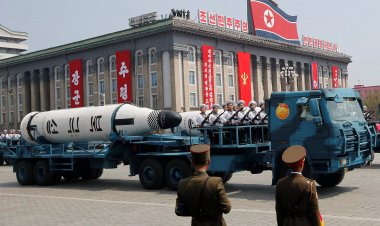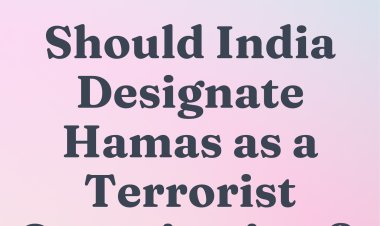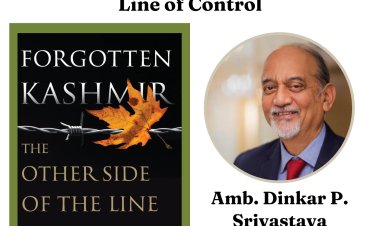Saudi Arabia Continues 'Neutrality' Over Kashmir, Which Pakistan Seeks to Undermine
The United States and Saudis are moving closer to India than to Pakistan to control China and the emerging asymmetric camp
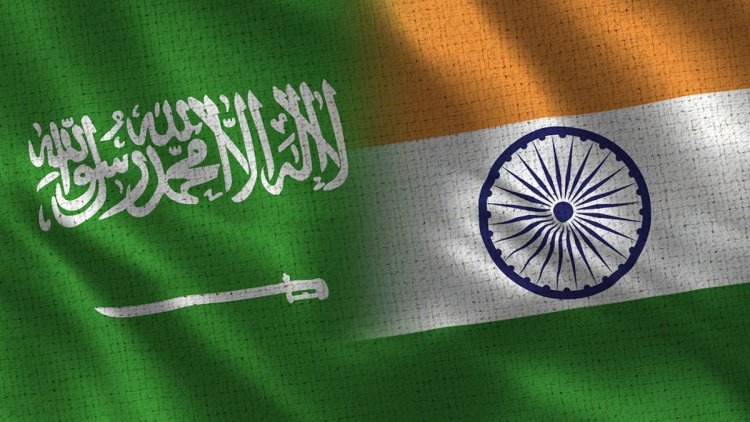
Based on an interview with Mr. Abhinav Pandya, CEO, Usanas Foundation
By Venus Upadhyay for Epoch Times
While Saudi Arabia maintains its neutrality over the Kashmir issue in India’s favor, India’s archrival Pakistan is making all efforts to mend its relations with the Gulf country and woo it to change its stance on the territorial dispute.
These diplomatic moves are occurring in the context of India opposing terrorism in Kashmir, China seeking greater influence in the Middle East, and Iran—and possibly Saudi Arabia—seeking nuclear weapons.
India and Pakistan have fought multiple wars over Kashmir, a Muslim majority region that before the partition of the Indian subcontinent into India and Pakistan was ruled by a Hindu ruler.
The region gained strategic importance after World War II as it shared borders with Turkestan, Afghanistan, and Tibet and was separated from the Soviet Union by a narrow stretch of the Hindu Kush mountains.
In a sharp turn of events, during and after the accession of Kashmir to India in 1947, the entire map around Kashmir changed—Turkestan and Tibet were captured by Mao’s People’s Liberation Army and became the Xinjiang and Tibet Autonomous regions, while Pakistan emerged to its west, a border that remains in dispute after multiple wars.
Abhinav Pandya, a strategic analyst and the CEO of the India-based think tank Usanas Foundation, pointed to three events in 1979 that had a direct impact on Kashmir: the seizure of the Grand Mosque in Mecca, the Islamic Revolution of Iran, and the Soviet invasion of Afghanistan. After that year, the Saudis sponsored Wahhabism across the globe. Wahhabism is an austere form of Islam that takes all those who don’t practice its strict doctrines as heathens.
Muslim majority Kashmir became a “natural choice for Wahhabi proselytization” because of the deep penetration of Pakistan, which had historically close relations with the Saudis, Pandya said.
Since then, the Saudis have had ambiguous stands on Kashmir on various global diplomatic forums; they’ve often supported Pakistan’s stance before recently taking to neutrality in India’s favor.
During Indian Prime Minister Narendra Modi’s visit to Riyadh in October 2019, Saudi Arabia maintained its neutrality over Kashmir and backed India on cross-border terrorism.
Spat Between Saudi Arabia, Pakistan
While Pakistan and Saudi Arabia share close economic, political, and military ties, relations hit a bump last year after the Saudis didn’t heed Pakistan’s demand to call a meeting of the Organization of Islamic Cooperation (OIC), which Saudi Arabia leads, to discuss the revocation of Jammu and Kashmir’s original political status by the Modi government, wrote Brookings Institution research fellow Madiha Afzal.
Pakistan Foreign Minister Shah Mehmood Qureshi asked the Saudis to show “leadership” and threatened to go to Iran, Malaysia, and Turkey for support if the Saudis didn’t call a meeting of OIC foreign ministers over Kashmir, Afzal said.
Meanwhile, the Saudis also denied permission to the Pakistan Embassy in Riyadh and the consulate in Jeddah to organize Kashmir Black Day programs on Oct. 27 last year, much to Pakistan’s dismay, Indian media reported.
The ruler of Jammu and Kashmir acceded to India on Oct. 27, 1947, and Pakistan observes that date as the Kashmir Black Day every year.
In recent years, India’s relationships with the Gulf Arab countries have significantly improved, particularly with Saudi Arabia, because India is an emerging economy and a key global market, Michael Kugelman, the deputy director of the Asia program at the Wilson Center in Washington, told The Epoch Times.
“Riyadh, like many countries, sees India as an important player, as a key market and a country that it doesn’t want to antagonize. Obviously, if you refrain from supporting the Kashmir cause publicly that certainly will help your cause with India,” Kugelman said.
Saudi Arabia, like many other countries, has occasionally expressed support for the Kashmir cause backed by Pakistan, but this shouldn’t be seen as sustained or substantive support, he said.
“We shouldn’t overstate Saudi Arabia support for the Kashmir cause. Yes, it has expressed its backing for the cause on a number of occasions over the years but, I don’t think we should overstate that,” said Kugelman, who noted that there are multiple geopolitical reasons that have influenced the Saudi stance over Kashmir.
Afzal said the Saudis didn’t take kindly to Pakistan’s “overt pressure” last year and immediately called in a $1 billion loan it gave to India’s neighbor in 2018 as an installment of a $3 billion loan package.
The situation seems to have eased for Pakistan this month after the Saudis returned the $1 billion. A plan to build a $10 billion Saudi Aramco oil refinery in the Pakistani port city of Gwadar also appears to be in the works. But the Saudi stance on Kashmir is unchanged.
Saudis Inside Kashmir
Traditionally, the Saudis have been a big player in Kashmir—the Saudis have “overwhelmingly funded” the Ahl-i-Hadith or Salafi religious movement, Pandya said. The Ahl-i-Hadith clergy in Kashmir follows the Saudi royal family, and this movement has exponentially grown inside Kashmir in the past 15 to 20 years, he added.
“There are about 1,000 Salafi mosques. They teach a very fundamentalist version of Islam, which is radicalizing local people on the lines of pan-Islamist movements,” said Pandya, who is the author of the book “Radicalization in India: an Exploration.”
“However, due to Kashmir’s syncretic Sufi traditions, puritanical Wahhabism could not make much headway. But by the late 1990s, Wahhabism started to spread very fast,” he said, adding that Wahhabism inside Kashmir was also supported by Pakistan.
“Saudi-Pakistan have enjoyed great ties. Saudis have invested a lot in Wahhabism in Pakistan. Pakistan favored it because it thought that if fundamentalist Salafism replaces the Sufi Islam of Kashmir, it will be easier for Pakistan to radicalize more local boys on religious lines. After the Arab Spring, Kashmiris came more under the influence of Salafist doctrines.”
Indian security agencies took a tough stance on Salafi clergy in Kashmir to curb this radicalization and also scrutinized the petrodollar funding that was producing a “pan-Islamist mindset much in line with the ideology of al-Qaeda and ISIS-like transnational terror groups.”
“As a result, the Salafi clergy decided to focus on religious matters and stay away from political issues and militancy,” said Pandya, whose next book is about the terror financing in Kashmir. “In fact, some Salafi clerics were working with the government to discourage boys from joining militancy. One of them Maulvi Shaukat Ahmad was killed by militants in 2011- possibly by Lashkar-i-Taiba, a terrorist group that believes in Ahl-i-hadith or Salafi ideology.”
Since Modi came to power in 2014, his government has had good relations with Saudi Arabia. For that reason, Pandya explained that no Salafi clerics inside Kashmir have any ties with terrorists today.
Chinese Ambitions and the ‘Asymmetric Camp’
Hamid Bahrami, author and an independent Middle East analyst based in Glasgow, Scotland, told The Epoch Times over a chat platform that new and asymmetric blocks are emerging in the geopolitical arena, and the Saudis have lost some interest in their relationship with Pakistan, which affects the Saudi stance over Kashmir as well.
“Since Pakistan has disappointed Saudi regarding the war in Yemen, and Pakistan took neutrality between Saudi and Iran, MBS [Saudi Crown Prince Mohammad Bin Salman] has been convinced that the current Pakistani approach is not favoring him,” Bahrami said.
“Moreover, Pakistan political establishment has a positive view of MBS’s political rival inside the Saudi royal family.”
Bahrami said the Saudis’ close ties with the United States and Pakistan’s close ties with U.S. rival China also add to the dynamics of foreign policies in Kashmir.
“The main threat is China, and unfortunately, Pakistan is paving Beijing’s way to access the Middle East through the port of Gwadar. This is a serious threat to the Saudi–U.S. camp. I consider Iran–Pakistan–Turkey–China–Russia as an asymmetric camp with different interests but the same rivals,” Bahrami said.
The United States and Saudis are moving closer to India than to Pakistan to control China and the emerging asymmetric camp, he said.
“If we want to get deeper, MBS’s view about geopolitics and protecting Saudi interests is not based on a religious agenda of supporting Wahhabism. MBS seeks economic development under ‘Vision 2030,’ and Pakistan does not have enough capacity for profitable bilateral relations with Saudi,” Bahrami said.
China’s links with Pakistan have complicated the situation, and MBS, according to Bahrami, is sending a warning to Pakistan.
“If China accesses the Middle East, with Iran as an ally, the stability of the oil market will be at risk. Moreover, Pakistan has currently chosen to be in the asymmetric block, thus if Iran gets nuclear (I believe with Biden’s current approach it is not impossible), Saudi will attempt to be nuclear through India,” Bahrami said.
“Pakistan, ideologically, is closed to Iran. As a significant percentage of the Pakistani population is Shi’ite, the anti-Israeli approach inside Pakistan is common, considering that the Saudi tendency to normalize relations with Israel has caused a negative view within Pakistan’s leadership.”
Disclaimer: This article is the author’s individual scholastic contribution and does not necessarily reflect the organisation’s viewpoint.
This article was originally published in Epoch Times



